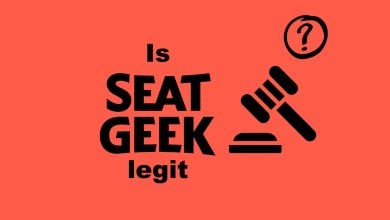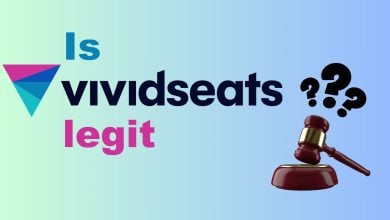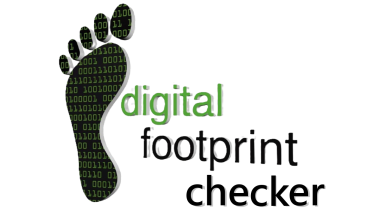5 Realistically Productive Things to do During Quarantine
Isaac Newton invented the calculus while under quarantine, and Shakespeare wrote King Lear during the bubonic plague. Incredible, but few of us are mathematical geniuses or celebrated poets. Those are “feel good” examples being passed around social media to inspire us during these strange times. There’s a ring of truth to it though – we could be using this time to better ourselves. Why not?
Kanye West rapped ‘shoot for the stars, so you can fall and land on a cloud’ – it sounds like a Hallmark card, but heck yeah. Let’s shoot for stars and stuff. In baby steps, though – so with that in mind, here are 5 realistically productive things you can do during quarantine, without feeling guilty for not inventing time-travel or something.
Check your library’s ebook catalogue
A good majority of local libraries offer eBook catalogs, and all you need is a library membership. Don’t have a local library membership? Many also offer online registration. It doesn’t hurt to check.
If you’re out of luck with a local library, turn to free eBook resources:
That is five out of probably hundreds of free eBook resources. You could even subscribe to a free month-trial like Amazon Prime Reading and cancel it before the trial expires.
Set up a feed of useful information
There’s so much fake news and misinformation on social media, it’s important to stay vigilant and be accurately informed. During a global pandemic, you want the most accurate information from official sources, perhaps as soon as the information becomes available.
Other things you might want to monitor are stock markets, currency exchange rates, and announcements from social media accounts of local government officials. I personally use Rainmeter, a free desktop skinning tool that lets me put as many RSS feeds as I want on my desktop.
For the latest virus information, subscribe to the CDC feed, use the John Hopkins University & Medicine real-time COVID-19 map, and as mentioned above, monitor the social media accounts of local government officials for updates and announcements in your area.
By doing these things, you can actually help people by spreading the information. Sharing factual statements and information from official sources on social media will help stem the flood of any misinformation that could actually hurt people during a pandemic (like fake vaccines and remedies).
Take free online courses from top universities
You can sign up for free online courses from Ivy League universities like Harvard, Stanford, MIT, Oxford, and others like, literally right now. Will you get a diploma and the prestige of actually attending those schools? Likely not. But who cares? You’ve got however long quarantines last to avail them, and learn some useful stuff. Art and photography? Check. Philosophy? Check. Introduction to AI Deep Learning? All the checks.
Here’s a list of 450 Ivy League courses you can take online right now, and you’d find hundreds more with Google.
AI and machine learning is actually a really hot topic to understand, because there are such incredible things being done with AI, and so much more to be achieved. For example, the world’s fastest supercomputer is being used to identify chemicals that can be used to treat coronavirus. AI is going to completely transform our life in the next decade, so check out some artificial intelligence courses to see where it’s all going (hint: AI global government, for reals).
Take cyber security seriously
In the past several years, the healthcare industry has been hit perhaps the hardest of all by data breaches and cybercriminals. Healthcare companies possess literal treasure chests of private information like social security numbers and bank details, and despite security protocols like HIPAA, the healthcare companies also have woefully low cybersecurity budgets.
During a global pandemic, hackers will target the healthcare industry harder than ever – we’re already seeing it, not to mention that the HHS has already waived some HIPAA protocols due to coronavirus.
Also, while governments globally are talking about virus relief packages for their citizens, email phishers are already launching fake email campaigns to try and obtain your information and bank details. It is a better time than ever to actually learn a bit about cyber security and things like VPNs, password managers, and browser security plug-ins keep you safe.
I’m not pitching you any products, I’m just saying – go to a website like HaveIBeenPwned and see if any of your emails or passwords are leaked. With the hustle and bustle of daily life, it’s easy to forget our devices contain literally every piece of vital information about us, so use this time to make a routine sweep of your online security.
Check out alternative financial platforms
For freelancers and retailers that primarily obtain and withdraw funds through only one platform, do consider that others exist. I once had a Paypal account limitation that put me into a panic for a week. It was nothing personal, but the AI-security system flagged me for reasons unknown, and I had it easily lifted with a couple of phone calls.
But in times of uncertainty, make sure you can easily receive money on different platforms, to eliminate any possibility of a sudden account limitation sending you into scramble-mode. There are several reputable merchant platforms besides Paypal, and it’s also worth using scanning payment through your mobile device to eliminate handling physical currency (germs etc.)
- Payoneer
- Stripe
- Transferwise
- Skrill
- QuickBooks
- Google Wallet





